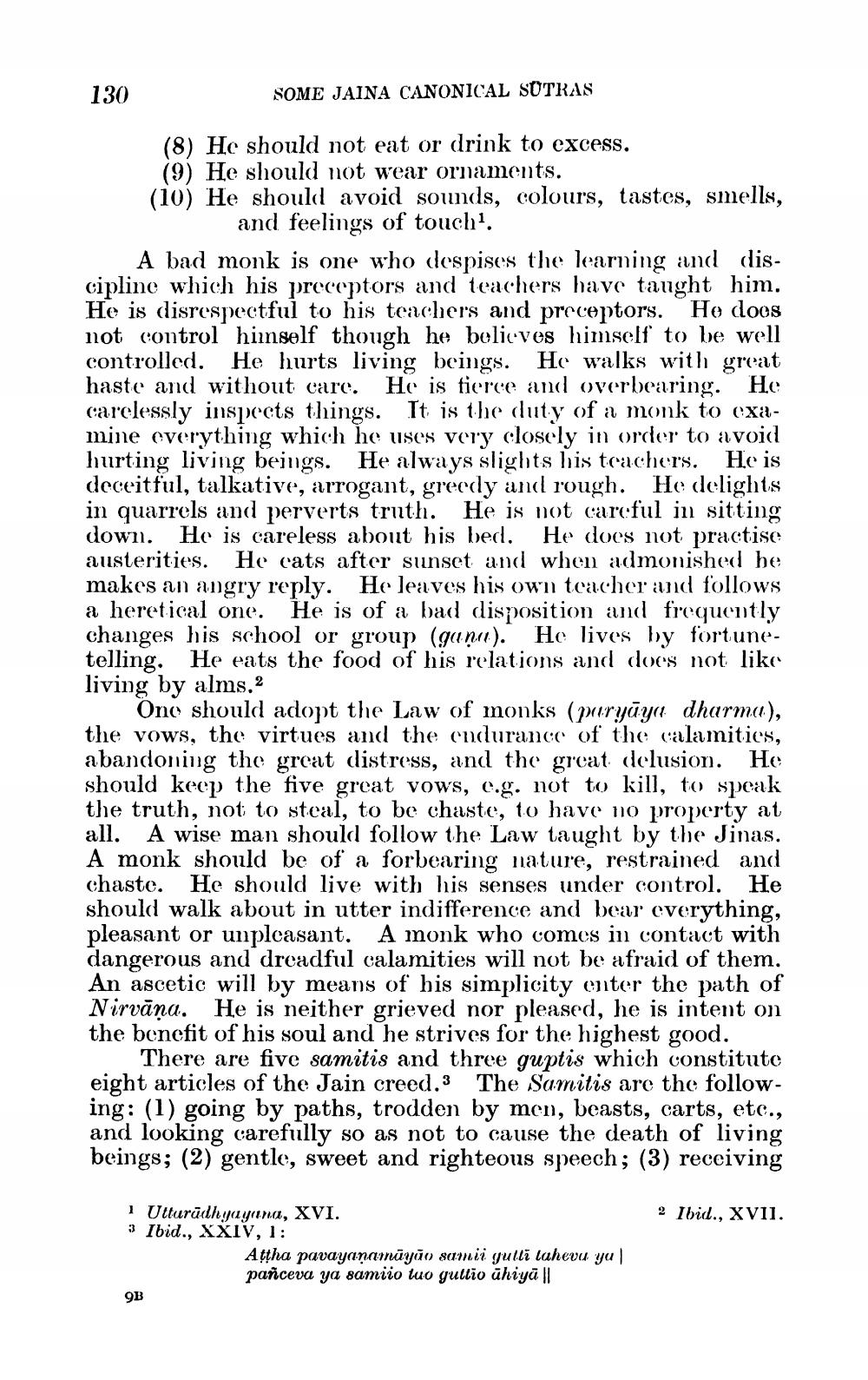________________
130
SOME JAINA CANONICAL SUTRAS
(8) He should not eat or drink to excess. (9) He should not wear ornaments. (10) He should avoid sounds, colours, tastes, smells, and feelings of touch1.
A bad monk is one who despises the learning and discipline which his preceptors and teachers have taught him. He is disrespectful to his teachers and preceptors. He does not control himself though he believes himself to be well controlled. He hurts living beings. He walks with great haste and without care. He is fierce and overbearing. He carelessly inspects things. It is the duty of a monk to examine everything which he uses very closely in order to avoid hurting living beings. He always slights his teachers. He is deceitful, talkative, arrogant, greedy and rough. He delights in quarrels and perverts truth. He is not careful in sitting down. He is careless about his bed. He does not practise austerities. He eats after sunset and when admonished he makes an angry reply. He leaves his own teacher and follows a heretical one. He is of a bad disposition and frequently changes his school or group (gana). He lives by fortunetelling. He eats the food of his relations and does not like living by alms.2
One should adopt the Law of monks (paryāya dharma), the vows, the virtues and the endurance of the calamities, abandoning the great distress, and the great delusion. He should keep the five great vows, e.g. not to kill, to speak the truth, not to steal, to be chaste, to have no property at all. A wise man should follow the Law taught by the Jinas. A monk should be of a forbearing nature, restrained and chaste. He should live with his senses under control. He should walk about in utter indifference and bear everything, pleasant or unpleasant. A monk who comes in contact with dangerous and dreadful calamities will not be afraid of them. An ascetic will by means of his simplicity enter the path of Nirvana. He is neither grieved nor pleased, he is intent on the benefit of his soul and he strives for the highest good.
There are five samitis and three guptis which constitute eight articles of the Jain creed. The Samitis are the following: (1) going by paths, trodden by men, beasts, carts, etc., and looking carefully so as not to cause the death of living beings; (2) gentle, sweet and righteous speech; (3) receiving
9B
1 Uttaradhyayana, XVI. 3 Ibid., XXIV, 1:
Aṭṭha pavayanamāyāo samii gutti laheva ya pañceva ya samiio tuo guttio āhiyā ||
2 Ibid., XVII.




